Surgical Education and Simulation Research Fellowship
Contact Information
Surgical Education and Simulation Research Fellowship
55 Fruit Street
Boston,
MA
02114
Email: mghserg@mgb.org
Accessible
Near Public Transit
Explore This Fellowship
About the Program
The Surgical Education and Simulation Research Fellowship in the Mass General Brigham Department of Surgery is dedicated to training fellows to be academic surgical leaders in the field of surgical education, research and simulation.
This program also consists of close relationships with the Codman Center for Clinical Effectiveness and the Massachusetts Institute of Technology. These relationships, along with others in Boston and across the country, have helped fellows pursue research projects in a variety of areas that bridge education, outcomes and technology.
This program can be one to two years in length depending on the fellow’s career aspirations and available financial resources.
As part of the Consortium of American College of Surgeons (ACS) Accredited Institutes, this fellowship program consists of high-quality formal didactic and hands-on training with regular feedback and mentorship.
Goals
Graduates of the Surgical Education Research and Simulation Fellowship will be able to:
- Conceive, develop and run simulation-based training and evaluation modules
- Create, administer and evaluate new simulation programs/centers
- Critically appraise and/or conduct simulation-based medical education research
- Describe the theoretical and scientific foundations of simulation-based medical/surgical education
Research Areas
Fellows will be able to learn about various research topics, including:
- Adult learning theories
- Assessment of education outcomes
- Emotional intelligence development
- Enhancing medical student exposure to surgery
- Linking resident education to patient outcomes / satisfaction
- Machine learning and Artificial Intelligence (AI)-based assessment
- Resident burnout prevention
- Resident clinical prioritization skills
- Simulation-based skills training
- Video-based education and coaching
Coursework
Fellows are expected to publish at least two manuscripts during the program.
Fellows attend the bi-weekly “Foundations in Educational Scholarship and Practice” didactic sessions taught by fellowship faculty. Bi-weekly institution-wide research meetings.
Curriculum
The Surgical Education and Simulation Research Fellowship at Mass General Brigham provides the fellow with didactic and mentored training that encompasses:
- Administration and leadership
- Curriculum design and evaluation
- Educational theory
- Faculty development
- Learner and program evaluation
- Technology support and simulation
Our existing simulation-based education fellowship curriculum is particularly robust and culminates in an American College of Surgeons-Accredited Education Institute (ACS-AEI) Certificate.
Mentored training in the above cognitive elements as well as human/fiscal resource management and research design/methodology will be delivered through bi-weekly meetings with the Fellowship research group and monthly meetings of institution-wide surgical education research meetings.
The fellow will have an opportunity to work very closely with Roy Phitayakorn, MD, Sophia McKinley, MD, MEd, and Dandan Chen, PhD, to design and complete their own individual research project that emphasizes at least one of the cognitive elements mentioned above. The simulation specialists will also mentor the fellow so that the fellow is comfortable managing the technical elements of a successful simulation session including role playing/improvisation and technical troubleshooting.
How to Apply
Requirements
Applicants must either:
- Have an MD and be enrolled or have completed a residency in any surgically-oriented field, or
- Be enrolled in or have completed a PhD program in a relevant field (including but not limited to psychometrics, education and computer science).
- External applicants need independent funding.
To Apply
To apply for the Surgical Education and Simulation Research Fellowship at Mass General, please send a cover letter, Curriculum Vitae and letter of recommendation from a supervisor (Program Director, Dept Chief or equivalent) to mghserg@mgb.org.
Application deadline is November 30.
Leadership
- Dandan Chen, PhD
Dept of Surgery Education Researcher
Instructor, Havard Medical School - Sophia McKinley, MD, MEd
Surgical Oncology, Mass General Brigham
Assistant Professor, Harvard Medical School - Roy Phitayakorn, MD
General and Endocrine Surgery, Mass General Brigham
Professor, Harvard Medical School
Collaborators
- Genevieve Boland, MD, PhD
- David Chang, MPH, PhD
- Sonia Cohen, MD, PhD
- Gerard Doherty, MD
- Jonathan Greer, MD
- Michael Healy, EdD
- Rich Hodin, MD
- Keith Lillemoe, MD
- Joy Moses
- Charu Paranjape, MD, MBBS
- Erika Rangel, MD
- Michael Sampson
- Douglas Smink, MD, MPH
- Sunita Srivastava, MD
- Lara Trager, PhD
- Robert Wang, MD
Current Fellows
 Tiffany Bellomo, MD
Tiffany Bellomo, MD
Medical School: University of Michigan Medical School
Residency: Vascular Surgery, Mass General Brigham
Tiffany is excited to join the surgical education fellowship and work towards improving the quality of resident education. Her first experience with resident education was in medical school, where she studied different aspects of struggling surgical residents from the perspective of program directors. During her residency, she designed and implemented a successful training program for ultrasound-guided femoral artery access. In the surgical education fellowship, Tiffany will focus on creating attending-specific surgical step resources and developing patient evaluation methods for resident performance. These projects aim to enhance the quality of surgical training and improve educational outcomes for residents.
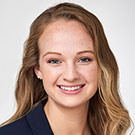 Claire Ferguson, MD
Claire Ferguson, MD
Medical School: SUNY Downstate Medical Center
Residency: General Surgery, SUNY Downstate Medical Center
Claire is a general surgery resident entering a two-year research fellowship with the MGB SERG program and the Downstate iNSPIRe initiative. She grew up in Massachusetts prior to attending SUNY Downstate for medical school and continued in their general surgery residency program. Her education experience includes leading the resident simulation curriculum and collaborating with the medical school to revamp the surgical simulation education for clerkship students. Her interests include surgical simulation education, leadership development, and wellness. She is honored to be joining the SERG program to develop as a surgical educator and aspires to contribute to surgical simulation education in the MGB community.
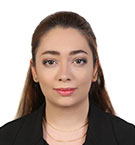 Shaghayegh (Shay) Sabbaghan Kermani, MD
Shaghayegh (Shay) Sabbaghan Kermani, MD
Medical School: Iran University of Medical Sciences
Dr. Shaghayegh (Shay) Sabbaghan Kermani graduated from Iran University of Medical Sciences in December 2020. With a strong foundation in medical knowledge and clinical expertise, she is dedicated to delivering exceptional healthcare to her patients. Driven by her commitment to surgical education and research, Dr. Sabbaghan Kermani has been accepted as a postdoctoral research fellow in the SERG program (Surgery Education Research and Simulation Fellowship) at Mass General Brigham. In this role, she focuses on advancing surgical education methodologies, exploring innovative simulation techniques, and conducting research to enhance surgical training and patient care.
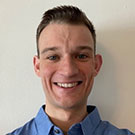 Chase Marso, MD
Chase Marso, MD
Medical School: Harvard Medical School
Residency: General Surgery, Mass General Brigham
Chase is a general surgery resident at MGB. He grew up in Brandon, SD, graduated with a BA in biology from Augustana University in Sioux Falls, SD, and then moved to Boston to attend Harvard Medical School. He plans to pursue fellowship training in cardiothoracic surgery. During his time as a research fellow, he is also pursuing an MHPE at the MGB Institute of Health Professions. His surgical education interests include improving resident evaluation, robotic training, and patient education.
 Brett Salomon, MD
Brett Salomon, MD
Medical School: LSU Health Sciences Center
Residency: Vascular Surgery, Mass General Brigham
Brett Salomon is a current integrated vascular surgery resident at MGB. He grew up in New Orleans, LA, where he studied for both undergraduate at Tulane University and medical school at LSU Health Sciences Center in New Orleans. Brett started his post graduate training in general surgery in Knoxville, TN prior to transferring to MGB into the integrated vascular surgery program. His interests in surgical education include pattern recognition training for intraoperative decision making, personalized learning, and curriculum development for endovascular and open vascular surgical skills acquisition.
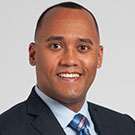 Jonah Thomas, MD, MS
Jonah Thomas, MD, MS
Medical School: Cleveland Clinic Lerner College of Medicine of Case Western University
Residency: General Surgery, Mass General Brigham
Jonah grew up in Chandler, AZ, and attended Barrett, the Honors College at ASU for undergrad, then earned a Master's in Biomedial Engineering from ASU. For medical school, he attended the Cleveland Clinic Lerner College of Medicine at Case Western Reserve University. During medical school, Jonah conducted research in abdominal wall reconstruction and surgical education. As a new SERF fellow, he aims to explore the transition from undergraduate to graduate medical education and enhance the literature on surgical subinternships.
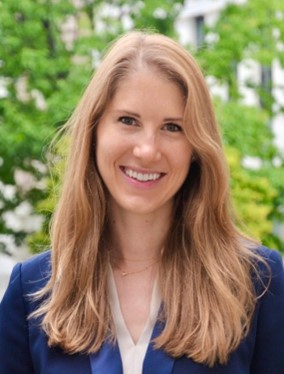 Emily Witt, MD, MSc
Emily Witt, MD, MSc
Medical School: Harvard Medical School
Residency: General Surgery, Mass General Brigham
Emily Witt is a general surgery resident at Mass General Brigham. Originally from Colorado, she earned a BA in Human Biology from Stanford University, as well as master’s degrees in Neuroscience and Medical Anthropology from the University of Oxford. She went on to receive her medical training at Harvard, where she first worked with the MGB SERG to elucidate medical student perspectives on the core surgical clerkship and to evaluate the potential of patient feedback in holistic resident evaluation. Going forward, Emily is interested incorporating precision education into surgical residency and enhancing resident utilization of intraoperative feedback.
Publications
- Altshuler M, Chen D, Healy MG, Petrusa E, Phitayakorn R, Selden NR. Evaluating neurosurgery resident competency: a comparative study of Milestones 1.0 and 2.0 across 10 years. Neurosurgery. Epub 2025 Jul 18. doi:10.1227/neu.0000000000003638.
- Rashid G, Kim E, Evenson A, Askari R, Petrusa E, Rogers D, Phitayakorn R. What is the medical student experience of incivilities on the surgery clerkship and do they matter? J Surg Educ. 2025 Aug;82(8):103535. Epub 2025 May 29. doi:10.1016/j.jsurg.2025.103535. PMID:40446450.
- Rothman DLP, Pradarelli A, Petrusa E, Phitayakorn R, et al. Medical student perceptions of effective and ineffective educators during their surgical clerkship. Global Surg Educ. 2025;4:58. Epub 2025. doi:10.1007/s44186-025-00368-4.
- Pradarelli AA, Evans J, Matusko N, Naughton NN, Phitayakorn R, Mullen JT, Chang L, Johnson M, Thambi-Pillai T, Ryckman J, Alvarez-Downing M, Cassaro S, Ivascu F, Hughes DT, Sandhu G. Characterizing the relationships amongst psychological safety, the learning environment, and well-being in surgical faculty and trainees. J Surg Educ. 2025 Feb;82(2):103375. Epub 2024 Dec 22. doi:10.1016/j.jsurg.2024.103375. PMID:39718309.
- Kochis MA, Tang RB, Petrusa ER, Fleshman JW, Cochran AL, Phitayakorn R. Defining the essential leadership skills for surgical residents leading inpatient teams: a modified Delphi study. J Surg Educ. 2025 Jan;82(1):103341. Epub 2024 Nov 18. doi:10.1016/j.jsurg.2024.103341. PMID:39561503.
- Witt EE, Jogerst K, Wojcik BM, Mansur A, Mullen JT, Petrusa ER, Phitayakorn R, McKinley SK. Patient satisfaction with women vs men surgical interns and senior residents. Am J Surg. 2024 Sep;235:115813. Epub 2024 Jul 2. doi:10.1016/j.amjsurg.2024.115813. PMID:38991253.
- Palenzuela DL, Whaley Z, Rogers DA, Saillant N, Gosh A, Askari R, Evenson A, Moses J, Phitayakorn R. Evolving medical student experiences in the surgery clerkship: a new generation. J Surg Res. 2024 Jun 5;300:363-370. Epub 2024 Jun 5. doi:10.1016/j.jss.2024.05.013. PMID:3884372.
- Palenzuela DL, Mullen JT, Phitayakorn R. AI versus MD: evaluating the surgical decision-making accuracy of ChatGPT-4. Surgery. Epub 2024 May 19. doi:10.1016/j.surg.2024.04.003. PMID:38769038.
- Pradarelli AA, Park YS, Healy MG, Phitayakorn R, Petrusa E. National profile of the ACGME Milestones 1.0 and 2.0 within general surgery: a seven-year national study from 2014 to 2021. J Surg Educ. Epub 2024 Mar 29. doi:10.1016/j.jsurg.2024.01.016. PMID:38555246.
- Phitayakorn R, Schwartz TA, Doherty GM. Practical guide to experimental and quasi-experimental research in surgical education. JAMA Surg. Epub 2024 Jan 3. doi:10.1001/jamasurg.2023.6693. PMID:38170499.
Presentations
- Palenzuela D, Phitayakorn R. What Does It Mean to Be a “Good Intern?” Association for Surgical Education Annual Meeting. “Shark Tank” Oral Presentation. San Diego, CA. April 13-15, 2023
- Palenzuela D, Pradarelli A, McKinley S, Moses J, Phitayakorn R. Pre-clinical Social Learning Immersion Experiences Improve Medical Student Perceptions of Surgery. 18th Annual Academic Surgical Congress. Oral Quickshot Presentation. Houston, TX. Feb 7-9, 2023
- Cron DC. Implementation of an Academic Development Rotation for Surgery Residents. Thinking Out of the Box – Oral Presentation. Association for Surgical Education Annual Meeting. San Antonio, TX. May 2022
- Cron DC, Coe T, Secor J, Guyer R, Brownlee S, Phitayakorn R, Mullen J, Lillemoe K, Liao E, Boland G. Implementation and Evaluation of an Academic Development Block Rotation for Surgery Residents. Oral Presentation. 18th Annual Academic Surgical Congress. Houston, TX. February 2023
- Whaley, Z, et al. Stakeholder Needs from a New Surgery Vice Chair of Education Position. Academic Surgical Congress; February 2023; Houston, TX
- Whaley, Z, et al. Mindsets in General Surgery Residents and Faculty. Association for Surgical Education Annual Meeting; April 2023; San Diego, CA. (Accepted)
- Whaley, Z, et al. Promoting Patient and Family Perceptions of Resident Involvement in Surgical Care (in submission)
Contact Us
The Surgical Education and Simulation Research Fellowship in the Mass General Brigham Department of Surgery provides formal training in principles and methods of surgical education and research.
